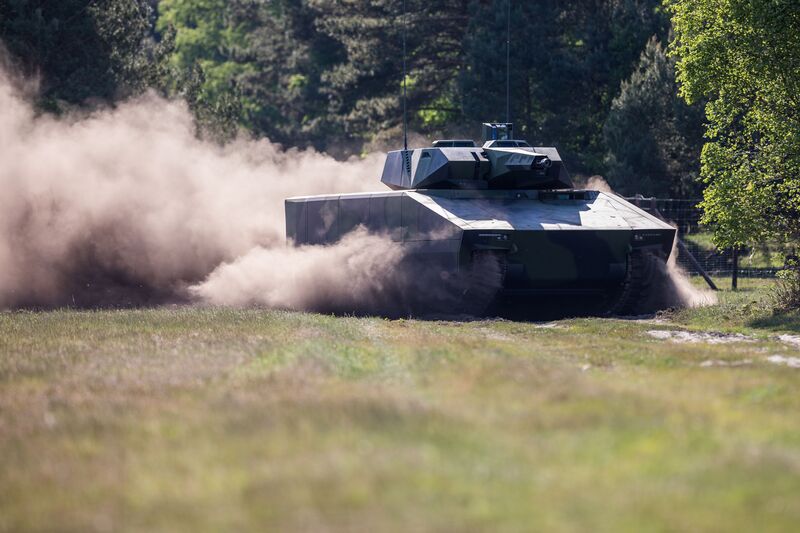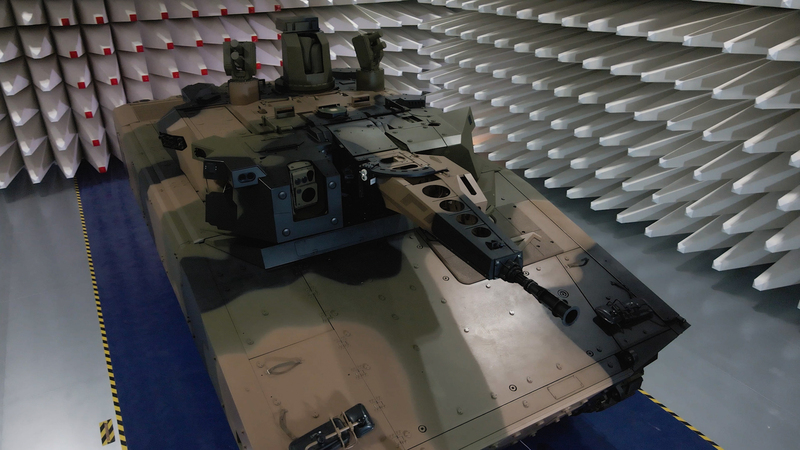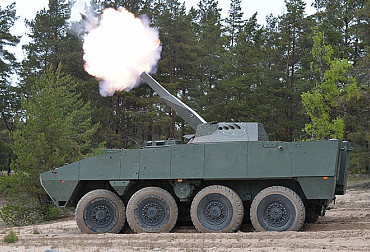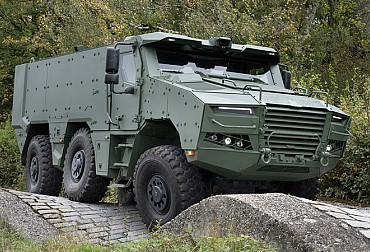Lynx KF41 IFV: National and global reasons for acquisition
Although the notorious contract for the acquisition of modern Infantry Fighting Vehicles for the Czech Army, respectively the 7th Mechanized Brigade, is slowly but surely approaching its end, it is not clear at this time which of the three vehicles will win the tender. However, the Lynx KF41 offered by Rheinmetall is relatively close.
 Picture: In addition to the generally known and required performance, the Lynx KF41 is also characterized by the possibility of integrating drones or loitering munition. | Rheinmetall / CC BY-NC-ND
Picture: In addition to the generally known and required performance, the Lynx KF41 is also characterized by the possibility of integrating drones or loitering munition. | Rheinmetall / CC BY-NC-ND
In addition to the generally known and required performance, the Lynx KF41 is also characterized by the possibility of integrating drones or loitering munition. Given the evolution of warfare, these abilities are a great advantage in the future. Of the three vehicles on offer, the Lynx offers the greatest comfort for the troopers inside the vehicle. Due to the fact that it is a relatively new vehicle, future upgrades can be expected - whether it is the integration of drones, loitering munition or the armored vehicles system of the future, which will automate the vast majority of vehicle activities so that the operator has less work and could only focus on supporting the troops and destroying the enemy.
 Picture: LYNX KF41 is equipped with the most modern means of situational awareness. | Rheinmetall / CC BY-NC-SA
Picture: LYNX KF41 is equipped with the most modern means of situational awareness. | Rheinmetall / CC BY-NC-SA
When considering all offers for new IFVs for the Czech Army, it is also necessary to take into account the geographical proximity of the parent state of Rheinmetall (Germany), where all communication, logistics and possibly modernization of all three options would be closest.
The geographical location is also related to the geopolitical orientation of the Czech Republic within the European and Euro-Atlantic security structures. From the point of view of diversification of armaments, it is advantageous for the Czech Republic to purchase ground equipment from Germany as one of the leading states of the EU. This will later make it possible to further diversify the armament and, for example, to choose a non-European solution in the field of supersonic aviation. An important factor in the decision-making process is how many countries already use or plan to use a given type of vehicle.
It is the fact that the Lynx KF41 is a modern vehicle that will serve at least until 2050, if not longer, the geographical proximity of the main manufacturer and the signing of a cooperation agreement between the manufacturer, Rheinmetall and the Czech holding CSG bring significant benefits not only to the Czech Army but also Czech defense industry. According to the representatives of both mentioned companies, the joint venture (created by signing the cooperation agreement) will not only focus on production and testing, but also on development. At the same time, Rheinmetall representatives confirmed the intention to involve CSG in the global supply chain for tracked combat vehicles. In the future, however, development cooperation may not only concern Rheinmetall and CSG, but also other companies and institutions.
For example, Rheinmetall is developing an advanced active protection system for its vehicles called StrikeShield, which recently introduced the latest version of the system, which responds to threats in the electromagnetic spectrum and reduces the electromagnetic footprint of itself and thus the entire vehicle. Until recently, the Czech Republic ran the development of its own system of active protection, which can be considered a very good basis for possible future cooperation in this area.
 Picture: Rheinmetall recently introduced the Skyranger project - air defense turrets. | Rheinmetall / CC BY-NC-SA
Picture: Rheinmetall recently introduced the Skyranger project - air defense turrets. | Rheinmetall / CC BY-NC-SA
The second potentially interesting area is cooperation on air defense equipment located on tracked chassis. In addition to tactical radars, Czech institutions are involved in the development of precision lasers. Lasers are proving to be the most suitable means of combating small and medium-sized drones - the threats of today and the future. Rheinmetall recently introduced the Skyranger project - air defense turrets. A jointly developed anti-drone laser system can then be part of this solution.
HDF.jpg)
Picture: In August 2020, a contract was announced with the German Rheinmetall for the acquisition of more than 200 LYNX KF41 IFVs (pictured), including the production of 172 pieces directly in Hungary. | Hungarian Ministry of Defense / CC BY-NC-SA
The mention of possible cooperation between the Czech defense industry in the development of state-of-the-art systems and modernization packages for Lynx KF41 vehicles is not accidental. The Lynx has already succeeded in Hungary, purchasing over 200 new IFVs. Rheinmetall also participates in tenders with the Lynx in Slovakia, Qatar, the USA and Australia. If Lynx succeeds in these tenders, the first two mentioned will be hundreds of vehicles. Together with the hundreds of vehicles in the Czech Republic and Hungary, however, from an economic point of view, they form a very interesting number.
From the point of view of the Czech defense industry, the mentioned case of the USA would be even better. If Lynx (according to Rheinmetall's representatives improved) succeeded in a program called Optionally Manned Fighting Vehicle, it would be an opportunity to replace up to 3,800 current Bradley combat vehicles. Rheinmetall in the USA cooperates with leading companies in the security and defense industry, such as Raytheon, Textron or L3Harris. The US military will select the winner in fiscal 2027, so deliveries of the first vehicles can be expected in the early 2030s. From this it can be concluded that the new combat vehicle will serve in the US Army at least until 2050.
In the Australian case, it is a replacement for up to 600 pieces of M113 vehicles. The Australian Army requires the achievement of initial operational capability in 2024-2025. Full operational capability is planned to be achieved in the early 2030s. As in the case of the United States, the new combat vehicle will serve in the Australian Army until at least 2050.
The KF41 Lynx therefore offers the Czech Republic a leap into the 21st century from the point of view of the army. From the point of view of the defense and security industry, it offers a wide range of modernization potential. Given the fact of how many tenders the vehicle is participating in around the world, this is an ideal opportunity to move the Czech defense and security industry to the world level.





















